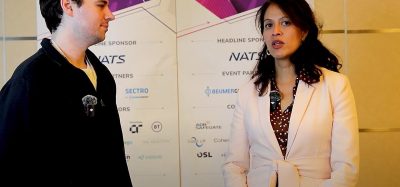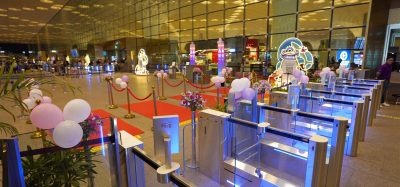Swedavia’s SVART IRIS project on IVA’s 100 List of Swedish innovations
- Like
- Digg
- Del
- Tumblr
- VKontakte
- Buffer
- Love This
- Odnoklassniki
- Meneame
- Blogger
- Amazon
- Yahoo Mail
- Gmail
- AOL
- Newsvine
- HackerNews
- Evernote
- MySpace
- Mail.ru
- Viadeo
- Line
- Comments
- Yummly
- SMS
- Viber
- Telegram
- Subscribe
- Skype
- Facebook Messenger
- Kakao
- LiveJournal
- Yammer
- Edgar
- Fintel
- Mix
- Instapaper
- Copy Link
Posted: 24 May 2023 | International Airport Review | No comments yet
The project works for more efficient air traffic management and was selected for their potential to encourage commercialisation and method development among society.


SVART IRIS recognised in the Service of Humanity by the Swedish Royal Academy of Engineering Sciences (IVA).
The Swedish Royal Academy of Engineering Sciences (IVA) has named Swedavia‘s SVART IRIS project one of 2023’s top research projects, under the theme Technology in the Service of Humanity. The project works for more efficient air traffic management and was selected for their potential to encourage commercialisation, business and method development/society impact.
SVART IRIS, funded by the Swedish Transport Administration, is led by Swedavia, and project partners include the Swedish Civil Aviation Administration (LFV), the Swedish airline Novair and the research services company GEISTT. The project is aimed at simplifying development work for more efficient flight paths to and from airports, which helps reduce the climate impact of aviation and creates more efficient use of airspace.
“It is very gratifying that [SVART IRIS] has been included on IVA’s 100 List of top research projects and is a welcome confirmation that the benefits of accelerating progress in more efficient, environmentally-friendly aviation are also seen as a high priority by the Swedish Royal Academy of Engineering Sciences. Innovative solutions, including in airspace, are an important part of Swedavia’s strategy for running the airports of the future,” says Fredrik Jaresved, Director of Strategic Initiatives and Innovations at Swedavia.
To speed up development, the BLACK IRIS project (in Swedish SVART IRIS, an acronym for simulation-based assessment approach and recommendations for technical choices for Swedavia’s IRIS programme) was launched in 2022. Participants in the research group include researchers, air traffic managers and pilots who all have more than 20 years of experience in applied research and innovation in the aviation field.
“More efficient and more environmentally-friendly approaches into airports are an important part of the work to achieve the aviation industry’s goals of reducing its climate impact. Swedish operators in the industry must make many early assessments of different feasible solutions in the air traffic management field in the years ahead, and the BLACK IRIS project is creating methods and tools for this,” notes Fredrik Jaresved.
Swedavia has worked for many years in a number of areas to improve the efficiency of airspace and reduce the aviation industry’s climate impact, both in Sweden and internationally. One important aspect of this work is research on curved approaches (also called non-linear approaches), carried out in Swedavia’s IRIS programme for studying curved approaches at its airports.
“Curved approaches make it possible to create shorter and more efficient flight paths, which save fuel and reduce atmospheric emissions while at the same time allowing aircraft to avoid flying over areas relatively close to the airport that are sensitive to noise,” says Anette Näs, who heads Swedavia’s IRIS programme and is a specialist in aviation operations systems at Swedavia.
The BLACK IRIS project
The aim of the project is to develop methods using simulation and structured analysis to support the concept development of decision support systems to be used in early phases of systems development, when it is needed most. Method development is being driven through four case studies assisted by an adaptive simulation capacity, known as targeted fidelity, which is a method that enables cost-effective assistance in concept development in early phases.
Related topics
New technologies, Operational efficiency, Social responsibility, Sustainability, Testing
Related airlines
Related organisations
GEISTT, Swedavia, Swedish Civil Aviation Administration (LFV), Swedish Royal Academy of Engineering Sciences (IVA), Swedish Transport Administration


















